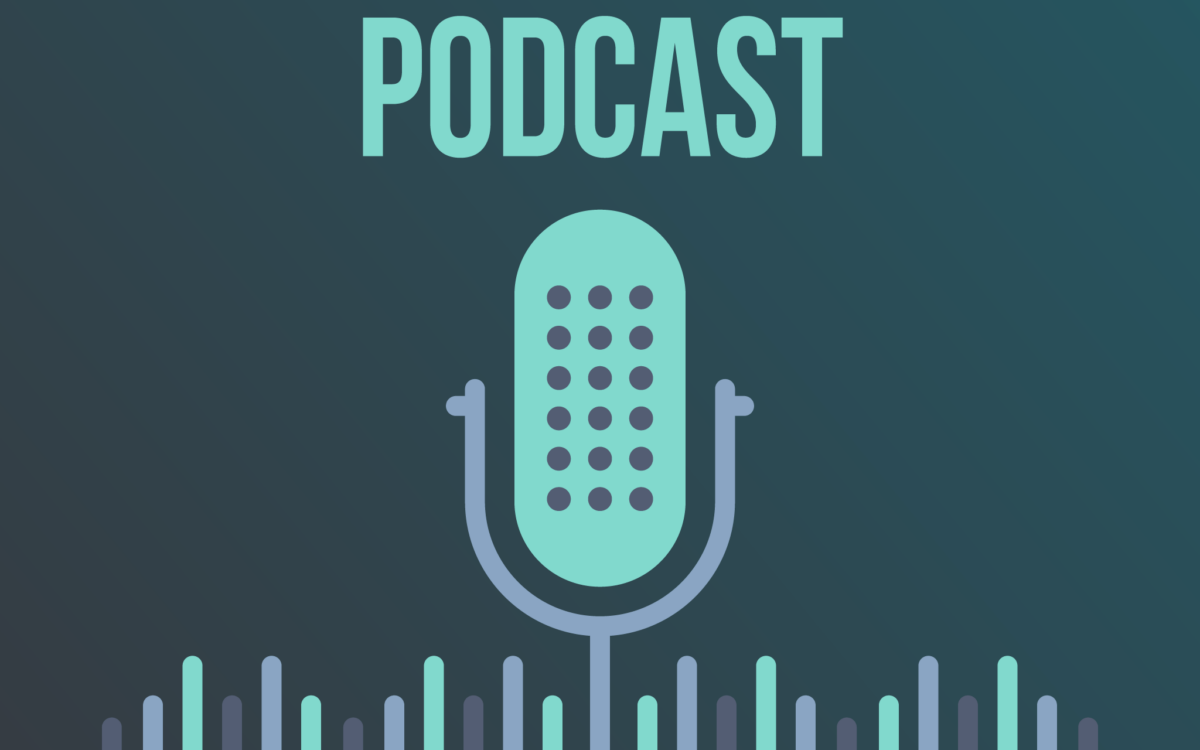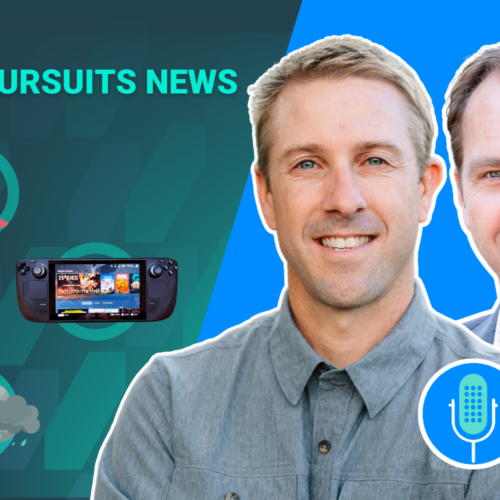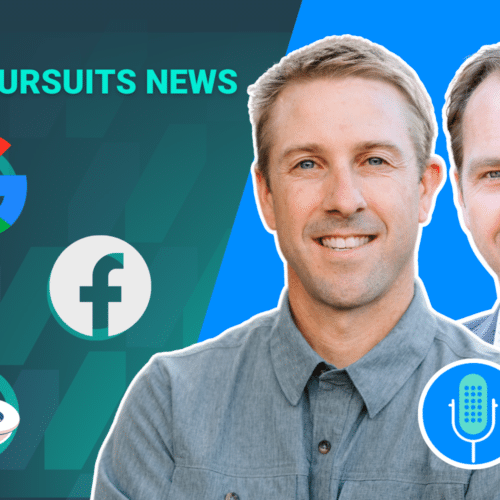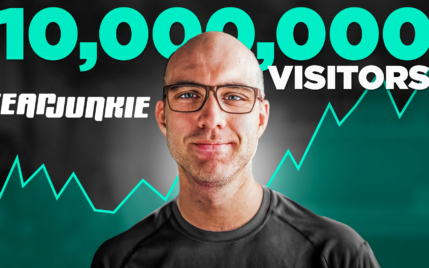Podcast 172: How to Grow a Youtube Channel with Collaborations, Re-Purposing, and Re-Publishing Content with Doug Cunnington

When you buy something through one of the links on our site, we may earn an affiliate commission.
I'm excited to have Doug Cunnington back on the podcast!
Doug and I connected back during the first Niche Site Project (2013) and he enjoyed my project so much, he started his blog and stole the name for his domain from my project! : )
NicheSiteProject.com is where you can follow along with what Doug is up to these days.
Even though Doug has been in the niche site game since at least 2013, he's now gotten heavily involved in Youtube and growing a significant channel. With about 20,000 subscribers, he's definitely gained some great traction there.
Today, Doug shares how to grow a Youtube channel. He shares his journey and the strategies that have worked well for him.
And of course outside of YouTube, I had to ask a few hard-hitting questions related to KGR and his project “go white hat” that had mixed results.
If you want to get access to Doug's Trello board for content creation, a Google Spreadsheet process doc, and a case study on publishing 60 videos in 30 days, you can get those right here.
Overall, I hope you enjoy the interview!
Items Mentioned on the Podcast
- Niche Site Project 1
- Keyword Golden Ratio
- Claire Smith Podcast interview
- Project Go White Hat
- Ahrefs
- SEMrush
Read the Full Transcript
Spencer: Hey everyone, it's Spencer here from nichepursuits.com, and welcome back to the Niche Pursuits Podcast. I got a good one here for you today. I've got a returning guest, it's Doug Cunnington from nichesiteproject.com, and we talk a lot about YouTube. Doug has been diving into YouTube and growing his channel. I wouldn't say that he is the biggest YouTube influencer yet, but certainly, in the online marketing space, he is starting to gain some traction. Again, I would say he's kind of earlier on in the journey, he doesn't have 100,000 or 200,000 subscribers, but he's approaching 20,000 subscribers, which is a significant channel and it's producing a lot of results in his business.
We dive into specifically what has worked well for him and how you can hopefully follow in those footsteps. Now, because Doug’s been on the podcast before, I couldn't let him get off the hook very easily without some tough questions. I jumped into it up pretty quick right off the bat, all in good-natured fun of course, but pretty direct, just some things that I noticed in the past. Where did he get his domain name from? Where did KGR come from? And some other things that I questioned him on.
After those tough questions, we dive into why is he republishing and reusing content on YouTube? How do live streams work on YouTube and why has that worked well for him? What type of email subscribers is he generating? What type of traffic are you generating from his YouTube channel? All good things, all the tactics Doug jumps in and shares with us. I hope that you enjoy the interview overall and thanks again for listening.
Doug, how are you doing today?
Doug: I'm doing awesome today. It's an honor to be on the show. I'm pumped to talk about YouTube and some other things. Always great to chat with you.
Spencer: Definitely. We've known each other for a long time actually, remind of the year that you started at least a niche project.
Doug: That was the fall of 2013, so it's been a while.
Spencer: Yeah. We've connected pretty much since the beginning. It's been I guess seven years that we've known each other. In internet years, that's forever pretty much. Before we jump into YouTube, what you're doing there, and what's working well, I want you to have a chance to basically introduce yourself. People don't know who Doug Cunnington is. Tell us a very brief background and what your business is right now? Where you're making money? What are you involved with?
Doug: Sure, I'm Doug Cunnington and I blogged over at Niche Site Project, as you mentioned. I have a YouTube channel and I mostly talk about Amazon affiliate marketing, SEO, and some project management. I had a corporate job for about 10 years and it was in IT. I did project management (of course) and I got laid off in 2015. Now, luckily, in 2013 I found Smart Passive Income, the podcast specifically, and your podcast, Spencer, and I discovered this whole world of Internet marketing, making money online that I had no idea about. I started dabbling with Amazon affiliate sites and basically was able to transition that side hustle into my full-time gig, once I got laid off.
That is one area of the business. I also have a course, where the meta way that we do this, making money online. It is a course on making money on Amazon affiliate sites, and that is the main area. The YouTube portion and a podcast that I have, I talked about all the same stuff as well. That's just a way to branch out and have a little bit of a bigger platform.
Spencer: Awesome. How many websites do you have outside of the Niche Site Project? How many other niche sites are you working on right now?
Doug: Roughly about five or so.
Spencer: Okay. That keeps you busy. You're in the trenches still building the sites, which is always good. Now, again, before we dive into YouTube, I have a couple of questions that might seem like tougher questions. They're going to be direct questions, but we've known each other for a long time and it's just because of the history, I know a few things that other people might know, so I want to get your take on some of the questions that I have.
First question is I started something called the Niche Site Project and now your domain name is nichesiteproject.com, is there any chance that there's a link between where you got your domain name from?
Doug: There's a direct link, directly from you, Spencer, and that was actually the first time that I got traction was your Niche Site Project, number one. That was a great name, I have a project management angle and I was like, “That's a good name.” I think that I checked with you beforehand, but seven years later, I'm a little bit better with branding and marketing, so I maybe would pick something different now.
Little known fact, Spencer. I think that Chris Ducker had this domain name originally, maybe a couple of years before, because when I registered it, his old side came up. It is a catchy name and I stuck with it and like I said, I'm a little better with branding now, but back then it was directly from you, Spencer and I thank you for letting me use it.
Spencer: Absolutely, it's a good name. That's funny, I didn't know that about Chris Ducker, the connection there. That's interesting. Should I be expecting royalty checks to start anytime soon?
Doug: We'll talk about it off the air.
Spencer: Okay, sounds good. Second question is Keyword Golden Ratio, you've actually become quite well known for KGR, the Keyword Golden Ratio there. I was relistening to a podcast interview that I did with Claire Smith on the Niche Pursuits Podcast, where she was talking about the all in title ratio that she would use to find keywords and it's started to sound a lot like KGR. The only problem is that the Claire Smith interview was recorded before the KGR was created. Just curious, did you get the idea for KGR from the Clare Smith interview?
Doug: I usually credit my mastermind group and some of the peers at the time which was circa, I think, 2016 or so. Did Claire’s interview come out earlier that year or something like that?
Spencer: I would have to pull it up, I don't remember exactly when it came out.
Doug: Cool, so definitely before I publish anything on KGR, my mastermind group and peers which I actually mention, just their first name to protect a little privacy, but they know who they are, and they've been around. Lewis, Rob, Shawna, and Quinton helped me pull together a lot of those ideas and there were many sources for those ideas.
I know I listened to that episode with Claire and then re-listened to it before our discussion today and KGR is definitely derivative of what Claire was talking about. I think and I hope that I iterated on the idea, refined what Claire was talking about, and I think I really simplified it. I narrowed the target and gave it a marketable name with the idea of branding. It's a catchy name and then I tested it, so I could share the results in a very specific way.
I did talk about it for two years before anyone paid attention and I think those simplifications and just generally making it more approachable made it more usable for more people. I've never sold any service, software, or tried to profit directly from the KGR. There's the angle that I take. Hopefully, I brought value and iterated on a good idea to make it more usable.
I would give a shout out to the Tropical MBA Podcast, a big influence on what I'm doing now. One of my favorite shows out there, so people should check it out if they haven't already, but they did show way back called, Rip, Pivot and Jam. I'm going to paraphrase, but generally, identify something that's working, innovate and improve on it, maybe take it to a new market, put a little bit of a spin on it, and then just work hard on it. Jam on it.
It's really hard to get an idea to catch on. I really think it was grassroots and talking about something that works. I tip my cap to Claire and your show because all the words are in there. All the components of The KGR are in that show, you got, all in title, minimum search volumes ratios, but I think distilling it down does add value.
Spencer: I agree. How much has KGR helped you out? Because like you said, you've talked about it for years. It seems like from an outside perspective, that's been really beneficial, that KGR started to take on. Even in my Facebook group, people talk a lot about KGR, “Is this a good KGR keyword? Yes or no,” that type of thing. It seems like a lot of word of mouth traffic (probably is), the word is spreading about KGR and I would assume that that's helping your site and your brand grow.
Doug: Yeah, 100%. Even before a niche site project, as far as the brand is growing and getting more traffic through KGR, my own personal affiliate sites were benefiting. I think that's one of the reasons why people have the confidence to test it and then talk about it when they get results. On my own personal sites, which I don't talk about too much like you Spencer, I tested it with 20 articles initially and then 10X it. So, I tested it with 200 and then did that a few times, so it really changed my business, gave me something to talk about, and helped me earn trust because people would test it out in a small area, and then they would realize, “Hey, maybe I should listen to some other stuff that Doug is talking about since this part worked out for me.” So, 100% KGR completely changed the business.
Spencer: Awesome. I'll just say that I think that's great. It's almost impossible to come up with a completely novel new idea. I think even for software tools that I've created like LongTailPro and now LinkWhisperer and other projects that I've worked, you certainly borrow ideas from other things that are working and it's how you tweak them, make them better, more marketable and accessible, et cetera. I think you explained that quite well, so thank you.
Finally, my third difficult question here (before we jump into YouTube) is Project Go White Hat. This is a project that started right around early 2017, I believe, and I'm reading the quote of the purpose of the project. It said, “The goal is to sell a niche site for over $500,000 after transforming it from gray hat backlinking to a white hat site.”
I remember following along with the project with a lot of interest and all your posts were really positive, things were you know going really well. However, some of the numbers that you were posting didn't match up exactly. It seems like the site was declining in traffic in earnings a little bit, and then you ended up selling the site for only $235,000.
Now, I will grant that along the way, there was the Amazon affiliate commission change in March of 2017 that definitely hurt the valuation of the site, but it did appear that the traffic was also declining pretty significantly and that things generally weren't going well. Am I wrong in my analysis that appeared, like the Project Go White Hat was somewhat of a failure even though the blog post sounded so positive?
Doug: Yeah, I can give you that, but I can expand on it as well. Definitely in the beginning, if you're looking at the initial goal which I intentionally left, I can easily change that $500,000 to some other value, move it, change it, or anything like that, but the progression of what was happening was slow, so that case study went over the course of six-plus months or so.
If you are looking at the initial goal, definitely 100% failure. It was less than half of the initial goal. However, (like many things) I realized I'm learning something along the way and even at least for a few months and at the beginning, we grew the site. We, as Rob Atkinson and myself, he's mentioned in the case study. He and I grew the site quite a bit as far as revenue goes.
Just in March of 2017, the commission rates changed for Amazon. Basically, our valuation dropped by about $100,000. That pretty much killed the selling price. As far as the traffic, it was definitely on a downward tick. Part of it could have potentially been some seasonality, but I think it was a little bit before a lot of the core algorithm updates that we see pretty frequently these days now in 2020. There may have been a little bit of a decline—getting deep into the weeds here—potentially because we removed a lot of those private blog network gray hat links, fairly quickly as we were attempting to sell.
We were trying to throttle it, and we didn't want to obviously sell something that was a ticking time bomb that was going to decline in traffic, so we were tapering off how we were moving them. It's hard to really tell how soon any of those impacts of removing links are going to hit the site. Like I said to go back to the concise answer, yeah, it looks like the traffic was declining but in writing all the blog posts, I tried to, “Here's what we learned. Try to have a lesson learned at the end,” versus, “Hey, this was a total disaster.” But a person could definitely take that impression away.
Spencer: Do you have any idea how the site's doing now? I know you don't own it and it was sold, but any insight there?
Doug: No, I should check. I haven't looked in probably a couple of years.
Spencer: Yeah, I'm just curious if it's made a comeback or not. Okay, very good, thank you for letting me ask my difficult questions. Let's move on to YouTube because I have noticed that you've been doing a lot of YouTube lately. You’re starting to gain a lot of traction, increased subscribers, and you shared with me privately that that has led to some interesting things, so let's jump into it. Can you give us a big picture idea of what success you're seeing with YouTube right now?
Doug: Sure. In general, there are about 18,000 subscribers on my channel. It’s (I think) over 1.2 million views, which both of those are vanity metrics in general. However, I can tell you that (I guess) the benefit again talking about just growing Niche Site Project, getting folks on to the email list, and people aware of what I'm doing, it's been pretty tremendous. I think I have something close to 900 videos out there. There's a lot of traffic just coming back to my blog because of all the YouTube videos.
Spencer: When did you start publishing on YouTube?
Doug: People can check out some of these really terrible videos back in 2014. I actually remember watching some of your videos, Spencer. You would do a lot of times live streams or webinar-type videos and I was like, “Oh, this is great. I'm learning a lot from Spencer.” Half the time I was doing a few tutorial type videos as well. I did a few back then and then I just really was busy with my full-time job. I was traveling quite a bit.
It was always on my list to do more videos. I started back in early 2016, I started doing a few more videos and I realized that I was actually getting more traffic from YouTube back to the blog and back to the email list, which for me is that's how I can grow the business. Get more people on the email list so I could build that relationship. Do you feel that way as well Spencer?
Spencer: I agree. Those are the really important metrics for me. Email subscribers are probably number one and traffic to the blog. I feel like people get to know and trust you a little bit more once they're on your email list, and then you can build a relationship further from there. I agree.
Doug: Yeah. I noticed a very interesting metric. You got to set this up with the analytics to make sure you're tracking properly, but YouTube traffic was converting to my email list at 5X any other traffic. I realized I should spend a little more time on YouTube, and I was back like I said in early late 2016.
Spencer: That brings up a few questions there. Really late 2016 is when you started to really dial into YouTube and started to focus on it at least. Can you share roughly how much traffic to your blog or how many email subscribers you're getting from your YouTube channel currently?
Doug: I don't know off the top of my head, but I can pull it up.
Spencer: […] guess.
Doug: If I had to guess, probably have a few dozen per day as far as traffic. I would say maybe 15 or 20 email subscribers per day, just ballpark.
Spencer: That's awesome. Very good. It gives people the big picture of, here's what you're doing, you're publishing on YouTube, you're getting traffic, you're getting them on your email list, then (of course) you have training products and other things that once they're on your email list, that you're working with them on. How can people get started on YouTube? How did you get started and what's changed between 2016 when you really started focusing and now.
Doug: I had a little bit of a leg up since at that time, I was blogging for about two-plus years or so. I knew topics that I could talk about. I knew what people were interested in, basically what people knew me for, and my strengths just in general. I leaned on that pretty heavily. I think if someone was starting from scratch and they didn't know exactly what to do, you should have a reason why you're doing it.
As I mentioned, I knew I was getting traffic and email subscribers, very important metrics for running my business. You should have an idea why. I think if you come in and you're not very specific, you may need to spend three months, six months just publishing videos and trying to figure out what you like to do, and what the audience likes to watch you publish. There definitely needs to be an overlap.
I think the other part is don't do what I did, which is to publish a few videos. They were really terrible, I was scared of the camera, and there's a lot of technical aspects that you maybe have to worry about. I was getting caught up in all the details and just didn't start until a couple of years later. Once I did get started, I made a commitment to do live streams often because those would remove some of the hurdles that I was experiencing. One of the hurdles is editing. Editing videos can take a long time. It's a little difficult from a technical standpoint but even harder to actually develop a style that people enjoy watching.
I'm just very slow at it, so I was trying to figure out how to eliminate that. Live streams are a great way to do it. I think I was trying to count in preparation for this interview. I think I've done over 350 live streams. You get a couple of things from that: (1) you eliminate the editing, and (2) people are a little bit more tolerant of misspeaking and just mistakes because it's live and you can have some interaction.
There are some other really cool benefits. You build community by running a live stream and often, depending on what you're doing, people are going to ask questions. So you develop skills around answering questions live, working with the trolls that may show up, and figuring out how to just answer tough questions. When you were telling me you're going to answer tough questions I was like, “I can handle it. I've had trolls come at me.” So, this is fine. Spencer's not a troll.
Spencer: That's all right.
Doug: So, once you get started, you can start publishing. It feels really scary at first because you don't have much out there, and that is the front-facing video. At this point (like I said) I have so many videos out there. I'm not really shy about doing a live stream or if someone doesn't like some of my videos, it's okay. There are many hundreds of others that maybe they will like.
So as far as getting started, I would say get started, make sure you understand why you're doing it. If you're trying to grow an email list, focus on that. If you're trying to just build a brand, focus on that portion. There are specific things you could do to help people sign up for your email list or just subscribe to you on YouTube and keep following your videos.
Spencer: Awesome. I think that's some great tips for people to get started. How do you choose content? How do you come up with ideas? I know we talked a little bit about republishing and reusing content as well, but first, how do you come up with original ideas? Are you doing keyword research, or just any idea that your community asks, all of the above?
Doug: Yeah, a little of each. One portion of it is a lot like keyword and competition analysis for any blog or other content that you may be producing. Let's say, you want to do an Internet marketing channel. Internet marketing is very competitive, by the way, folks so you may want to pick something different.
You can go to Niche Pursuits or a Niche Site Project, check out some of the more popular articles out there. Maybe you could use a tool like Ahrefs or SEMrush to see what content is actually ranking. Those are pretty good terms to go after and you usually would, in the case of YouTube, it's a how-to type concept. How to find a niche? How to do keyword research, for example.
You could do that same keyword research on YouTube, there's an auto suggest feature just like on the Google search field. You could type in “how to do keyword research for” and then you'll have many suggestions that you could potentially create a video on, and you know people are actually searching for that. That's just a really simple way to go for it.
Additionally, you could go to my channel and then see what videos I have. You usually can see and sort them by how popular they are, and then you can hopefully put your own spin on it, you wouldn't want to just regurgitate my content, which I've actually seen that many times where people just copy a video or copy the content of a video as far as the script or the words that are used, then they just recreate the same video, really adding no value. So, don't do that, but you can just do competition research and see what's working for other folks out there.
Spencer: Definitely. What about republishing and reusing content? What do you do there specifically and what's working?
Doug: There are several ways that I've done this. I've tested and layered this over time. One thing that I realized is I was publishing what I thought were pretty darn good videos back when I didn't have very many subscribers, say 1500 subscribers. The channel’s about 10X what that was, but I had pretty solid videos back then.
The thing is, people are not getting notified for that old content, it's just back in the archive. Knowing that I have hundreds of videos out there, it's pretty likely people are not going to go back, unless they’re really obsessive for some reason, and they go back deep into my video archive.
I realized that I could download that video. If I didn't have the original master video, just download it, record a new intro for it, and basically rerun. So, this is syndication for your favorite TV shows. They just play them again because they can stand alone. Not everybody saw all the Seinfeld episodes the first time around, that's why it’s syndicated all over the place.
Spencer: To clarify, you would end up having two published videos: one that maybe you published a couple of years ago (that's deep in the archive), and then you'd have a brand new video that's really the same video?
Doug: Yes. You would have to make a little bit of a change because if you upload the same video, YouTube is smart enough to see that it's duplicate, but if you record a new intro or an outro or even you could shave off two seconds and then it would be unique, you could actually do that.
It's a little funny but like I said, I could publish a video now that I published a year ago and most likely it's only a very small percentage of the subscribers or viewers that actually saw it back then. If it's good content, viewers don't mind watching the same thing again.
Spencer: If I were to do something like that on my blog, for example, if I were to write another article targeting the exact same keyword, I would be keyword-cannibalizing myself. That would be a really bad idea to have two articles on the exact same topic with the exact same content. Is there no keyword cannibalization penalty on Youtube?
Doug: That’s a really good question. I've never checked, but I do know that I don't get much traffic. I don't get many views on YouTube from people searching on YouTube. It just happens to be the way that I have created my channel. I think you're right, Spencer, you could have some issues there, but I haven't gone through the analysis. At the same time, a lot of the views that I get personally are through new views on new videos that have just been published through notifications. A lot of my views come in that way, and I know some other channels are potentially a little more evergreen in that they have a lot of search views coming in.
Spencer: All right. So that’s not necessarily a big concern for that. I cut you off there, but what else about republishing and reusing content? Beyond what you just explained, anything else that you’re doing there?
Doug: Sure, got a few more. One thing that I experimented with just based on seeing a few other big channels doing this, long videos. I do long interviews like what we're doing now. In fact, Spencer, you have a long interview on my channel and podcast. It's about an hour long. People dig it; people like those long-form interviews. I saw GaryVee publishing eight-hour videos, super long videos. I was like, “Who is watching?” especially GaryVee. I mean, I like him but he yells sometimes.
Spencer: Eight hours of what?
Doug: It's bananas.
Spencer: Of him sleeping?
Doug: He has the film crew following him around and it's just mashups of different maybe keynotes and stuff like that.
Spencer: Events he's doing.
Doug: Exactly. I was thinking, “Hey, what about success stories?” I have several success stories, those are the most popular episodes by far. What if I put together maybe four success stories, record an intro, let everybody know, “Hey, this is a long one,” and publish it, see what happens? I've done this a few times. I think less than ten but more than five. They’re two to four hours long and people watch them.
Not a ton of people watch them, but they've told me, “Hey, I love seeing the progression.” If I interview someone when they're making $100 a month and $500 and $2000, to just see that over the progression over the course of 18 months in real life, but you could watch it in an afternoon. So people will work on their niche sites, write content, or do keyword research with this on in the background just as a motivation, kind of crazy. You get a really long view time but not a ton of views.
Now, on the converse, Joe Rogan has a clip channel. He does very long interviews. I know I actually prefer to watch the short clips because I maybe don't have 2½ hours to watch him chat with someone about some obscure topic and just go on these wild tangents, so he has these clips that are 3–10 minutes long or so. They're much more digestible, they're a little tighter as far as content goes, so I've been experimenting with that. Again, good example, Spencer, I did that with a long interview with you and a lot of people watch those short clips because it's very concise.
The cool part for you in general, I can link to your blog, the products that we talked about. It's beneficial for the viewer because they're watching something that they actually can consume. It's a tight topic, you get another link back, maybe some more traffic to products or things that you're promoting or whatever we're talking about, and then I benefit because people are watching the channel, getting more view time and all that stuff.
Spencer: I think that's a great idea, being able to repurpose content. You put all the work into the long interview, why not split it up into specific topics that are (like you said) easily digestible for listeners. So, very cool. Now, what's involved in producing on YouTube? Is it just you or do you have more of a team at this point to help edit, produce, get the video out the door?
Doug: I have two assistants, one's a video editor. I hired her from Upwork and she's out of the Ukraine. She works for about $9 an hour, which I've actually given her a few raises over time. She does a really good job.
I used the same method that I use for hiring writers. I want to hire a few people for a trial job just to see how we work and I can actually compare the end results. I get to experience how they interpret my instructions and take feedback and all that sort of thing. Originally, I hired maybe four people, gave them an assignment and gave them all the same instructions, and then I got a video from each of them. I was very, very pleased to see most of them did a pretty good job, some of them were terrible.
She's been working with me for a couple of years now. She's just a better video editor. She's using better software, I think she's in film school, she understands what I'm trying to do, and takes those instructions really well.
Then, I have an executive assistant. She helps me with a few other things. She's actually US-based, but she helps me with all areas of my business from outreach for guest posting to just publishing stuff on WordPress, helping me proofread things, but she also does the admin for YouTube, which she had no experience in before, but she's able to help me schedule things, create thumbnails, which she uses Canva for, that's what I used to use as well. She could put links in, affiliate links, and generally set things up on the YouTube dashboard, YouTube Studio they call it now.
As far as recording, I do that all myself. Actually, I’m a little bit of a gear fanatic. I love camera gear and video gear and the lighting and all the details and the lenses. I have way more than I need. Some of those early videos were just with my old-school DSLR, well it's old-school. It could do HD video so it wasn't that old, but it was a Canon T2i, but it didn't have very good autofocus. It didn't have an external microphone or anything like that. I started just recording with that camera that would do it.
Nowadays, I would probably just tell people to use your smartphone, no matter what you have it's probably really good, lighting is usually pretty good. I do all the production myself. Really, if you just sit in front of a window or stand in front of a window, it's usually pretty good lighting. That's what you want, that's pretty natural.
As far as workflow, I'll upload the videos to Google Drive, but you could use any cloud sharing situation, my video editor gets it, and then I think I use a Zapier to move the video over to YouTube once she uploads the finished product. I'm not too much of a stickler on re-editing it. Usually, her first cut is pretty good, unless there's some weird mistake. Very, very small team. From my corporate days, I had a big team, I had managers working for me and I don't want to be at the top of a network chart. I like to have a pretty flat lean team and no managers in place, just me working with the folks that need to do the specific tasks.
Spencer: Cool. It sounds (like you said) a small team that gets the job done. You're doing mostly recording and then at that point your team really helps take care of a lot of the other work that's involved. One other question that I have is, you mentioned you're not getting a lot of new subscribers or views from search traffic, like Youtube search traffic, you're getting it in other ways. Where are your subscribers coming from?
Doug: Actually, that's a good question. A lot of them are through suggested videos. A lot of the views are coming that way, a lot of subscribers are coming in that way. I also think I am getting some search traffic but not a huge amount. A lot of the new folks coming in, they’ll watch one or two videos, they don't subscribe but then maybe they're suggested, YouTube suggests a couple of videos that are mine, and then they may subscribe after that. Like any marketing, it may take multiple exposures to an idea or a person or the channel before they actually make any commitment. I have a feeling it's something like that.
One of the other areas is collaborations, which we could go more in-depth, but I'll pause here instead. I'll let you lead the conversation versus pushing us that way.
Spencer: No, I think that's probably a good way to go. I think that makes sense what you're saying about suggested videos. I was just curious there, but my hunch is that perhaps collaborations are also a good source of new subscribers. Why don't you tell us what you're doing there and what's working?
Doug: Collaborations, for people that don't know, it's like guest posting for YouTube, which I know a lot of your audience, Spencer, very familiar with guest posting. Essentially, you and at least one other YouTube creator work together either on one video or maybe you interview each other. For example, you may end up doing a two-part video where one part of the video is on your channel and the other part is on their channel. You end up, not just encouraging people to check out both channels but to really push them in that direction.
If I just interview someone and put the interview on my channel, technically that's a collaboration, but it's not necessarily as effective, especially for one party or the other depending on who's a larger draw.
So the big thing with collaborations is you want to get that referral traffic. For guest posting, from an SEO standpoint, a lot of times you aren't necessarily worried about the referral traffic and getting traffic from that actual guest post. It's more about getting that backlink from a very authoritative site.
I would argue that if you do get the referral traffic on an actual blog guest post, that's some of the best traffic you can get. People are usually stickier, and they spend a lot of time on your site. A lot of times, at least I've seen, they will sign up for your email list, which is my conversion point like we talked about before.
Just like with guest posting, you want to use smart networking techniques. Don't send bad pitches. At this point, even with my fairly modest channel, I get probably three or four emails a day and they're terrible. Sometimes, I get pitches to work with a brand that is not a good fit.
For example, I'm a bald guy, people may not know that if you're listening to it. I'm a bald guy. If they're sending me makeup stuff or some other beauty item, not a good fit for my audience, not a good fit for me; I couldn't even use it. Maybe if they have some anti-shine thing, that's a good one, that's a good one for me; I’d use that. You got to look for that audience overlap. It's very, very important. You need to have that common ground.
I've landed some very good collaborations with huge channels, but it didn't convert well. I don't think many people really cared because it was like a digital nomad traveler and it wasn't as good of a connection as I thought. Those audiences just didn't really care what I was doing. They were more about the travel and just not having a corporate job versus trying to make money on their own. I thought it was pretty close.
There's a lot of overlap of digital nomads and Internet marketing and affiliate marketing, but that particular audience wasn't good. It doesn't mean don't do it because you can make other connections, and they have a full network of folks over there, but you got to make sure there's a good match so you could actually pull some of that audience over to you, and of course, hopefully, some of your audience will migrate over to the other creator.
Spencer: For the most part, the collaborations you're doing are interviews. You're going on to their channel, and then they might come on to your channel for an interview?
Doug: A lot of the times that is definitely the simplest way to get it set up. This is an advanced technique that I don't think I've seen other people do this, but surely, I didn't come up with it on my own. Once, I did an interview with someone. We had a good rapport; we enjoyed chatting with each other.
I had an idea to create a playlist with another creator. Basically, we taught a keyword golden ratio masterclass, to be meta and go back to the earlier questions. I knew people were interested in more details about the KGR. They had questions about exception cases and all these little details, and I knew because they were leaving comments on a bunch of different videos.
Basically, I went to this other creator who has a channel; it’s Alex Cooper over at WP Eagle. If people are interested, you could find KGR masterclass out there. Basically, I was like, “Alex, I know your channel is much bigger than mine, but I have this idea. Here are my video ideas, I know they're good ideas. I think if we work together on this it could be pretty cool if you're up for the experiment.”
We published ten videos; five on my channel, five on his. I checked some of the data, it looks like my playlist has almost 25,000 views and his has about 10,000 views. It's paid off, it put him as an authority on the KGR, even though he wasn't a very well-known person for keyword research or anything in that area, but he was talking about Amazon affiliate sites. We had a good match of skills and a good match of audience, I think for both of us it really helped out.
Spencer: I think that's very cool; it's a good idea doing a playlist. I think just overall, it makes sense. It's getting your name out there, it's working with other people that are well-known in the space. If you want to have subscribers, there's already people subscribing to other people, other Youtubers. If you're able to connect with them, collaborate and work with them in some way, it's good marketing and it makes sense. You've given some good examples there of how to do that. I certainly am not an expert on YouTube at all, but it logically makes a lot of sense why this would work.
Doug: If I could do a call back to the rip, pivot, and jam, this is like doing a mini roundup post. Maybe a 2.0 of this for any adventurous person, you could talk to a few other creators, say, four creators, put together the same thing, a playlist, you all work together, make sure you have a common good overlap of the audience, and just publish it, see how it goes. The first time you do it, it may not work out perfectly, but I think it’s something that not a lot of other people are doing right now. Essentially, it is a roundup post, which has been done to death on the Internet marketing space as far as blogs. Remember these, Spencer, you would get an email every two days to do a roundup post for someone?
Spencer: Absolutely. Yup.
Doug: They worked great until it was abused. I don't really do them anymore because I wasn't getting much traffic and it was just too many of them, but you're taking an idea, roundup post. It worked at one point, it's a good marketing technique. You get to network with people in your area and your industry. You take this idea, you put it to a different market, which is YouTube, and you're doing a roundup post but it's a video.
Spencer: I think that's a great idea as well. Doug, thanks for coming on and sharing a lot of your YouTube tips. Before we go, I want to give you a chance, any final advice for somebody that's just getting started, or any final strategies that you'd like to share that have worked really well for you?
Doug: Yes. Whether you're thinking, “Hey, I want to start a blog,” or “I want to do a podcast or YouTube,” just start it. I wish I would have done YouTube a lot more in 2014 and 2015. I would have had way more experience by the time that I was ready to do even more videos. I was just scared. I mean, at that point I had already been blogging for a little while. I knew people were interested in what I had to say, but I was still scared. I guess the spoiler alert, that doesn't go away.
When you launch a podcast or when you do something different, even if you're established, it will still be scary, but I encourage people to just get started, push past that (I guess) embarrassment because I was embarrassed to even publish anything. People are like, “Hey, what are you working on?” and I wouldn't really want to tell them, “Hey, I'm doing these YouTube videos,” because I knew they were bad. But once you get started you can start improving and work on it, come at it from an angle where you do want to improve on it.
So again, whether you’re writing or video or podcast. I think for YouTube or any video, maybe you want to publish a video on LinkedIn, just get started. The sooner you start the sooner you can get better. It's a great format. Obviously, video is becoming more and more prevalent, it's easier to produce. The devices, like our smartphones, make it very easy to just publish quickly. I encourage people to get started on that stuff.
Spencer: if people want to learn a little bit more from you, specifically about YouTube, is there any place that they can go to do that?
Doug: Yes. I put together a cheat sheet/resource area. I have a Trello board that I use for content management, brainstorming, status reporting, and all that stuff for my Youtube publishing schedule. I also have a spreadsheet that I used, it's just a Google Sheet before I moved over to Trello. So, I have those over at nichesiteproject.com/npyoutube. So, we'll put the link out there and everything.
I also published 60 videos a couple of years ago in 30 days as an experiment. I documented that case study and that is also located there. If you want to go deep and look at how I built the team, pulled the system together, really stress tested it, and stressed myself out by the way by publishing two videos per day for a month, you can get all that stuff there. I know people are listening to this podcast. I have a podcast, it's called the Doug/Show. Spencer was a guest, Jon Dykstra, Ron Stefanski, a lot of friends of the show, I encourage people to check it out.
Spencer: Yup, absolutely. To repeat that URL, I think it was nichesiteproject.com/npyoutube. Is that right?
Doug: Yup, that's it.
Spencer: People can check that out. Then, of course, your site over at nichesiteproject.com and the other resources that you mentioned. Doug, thanks for coming on the podcast. It's been a pleasure.
Doug: Thanks so much for having me.
Want to learn step-by-step how I built my Niche Site Empire up to a full-time income?
Yes! I Love to Learn
Learn How I Built My Niche Site Empire to a Full-time Income
- How to Pick the Right Keywords at the START, and avoid the losers
- How to Scale and Outsource 90% of the Work, Allowing Your Empire to GROW Without You
- How to Build a Site That Gets REAL TRAFFIC FROM GOOGLE (every. single. day.)
- Subscribe to the Niche Pursuits Newsletter delivered with value 3X per week
My top recommendations
















